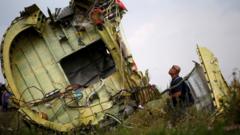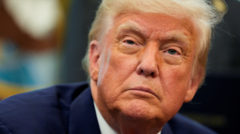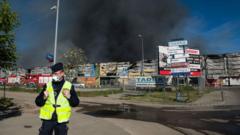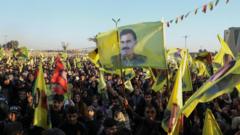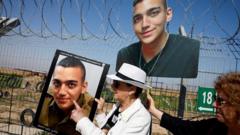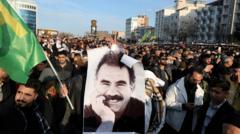In a bold move to broker peace, President Zelensky confirms his upcoming visit to Turkey for potential discussions with President Putin, emphasizing a prioritized 30-day ceasefire as negotiations resume amid the ongoing conflict.
Zelensky Pushes for Peace Talks in Turkey, Urges Ceasefire
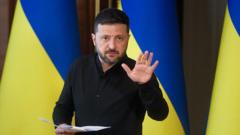
Zelensky Pushes for Peace Talks in Turkey, Urges Ceasefire
Ukrainian President Volodymyr Zelensky is set to meet Turkish President Erdogan and urges for direct talks with Putin to establish a ceasefire.
Ukrainian President Volodymyr Zelensky has announced plans to travel to Ankara, Turkey, to meet with President Recep Tayyip Erdogan and facilitate direct conversations with Russian President Vladimir Putin, set for Thursday in Istanbul. Zelensky expressed that his focus is on securing a 30-day ceasefire amidst the ongoing war, emphasizing the collective agreement among Ukraine's allies on this objective.
The Kremlin has yet to reveal who will attend the talks in Istanbul and has indicated that such announcements depend on Putin's discretion. Notably, this meeting comes after a hiatus of over five years since the two leaders last met in person. The only previous direct discussions happened during their meeting in Istanbul back in March 2022, shortly following Russia's invasion of Ukraine.
Zelensky's confirmation of the summit comes at a time when he is exerting pressure on Russia to engage in negotiations. Despite warning from the Kremlin that pressuring Moscow is futile, Zelensky is keen on advancing the discussion on ending hostilities. Putin's purported invitation for direct talks may have been a strategic maneuver, according to Zelensky, to gain an advantage over Ukraine's responses.
The U.S. has indicated that a high-level delegation may also attend, with President Trump hinting at the possibility of traveling to Istanbul himself if circumstances allow. However, speculation persists regarding whether Putin will personally attend the summit, as the Kremlin has downplayed the likelihood of his presence.
Ukraine's allies, including the leaders of the UK, Germany, Poland, and France, visited Kyiv recently to reinforce their support and conveyed a clear message: further sanctions against Russia loom if a ceasefire is not established. Meanwhile, EU foreign policy chief Kaja Kallas expressed her belief that while a meeting would be beneficial, it is doubtful that Putin would engage.
In a sharp statement, Zelensky accused Putin of being fearful of a direct confrontation, highlighting that refusal to attend the Istanbul meetings would signal the Russian leader's disinterest in resolving the conflict. As diplomatic efforts heat up, the international community remains watchful of the outcomes of these pivotal talks.



